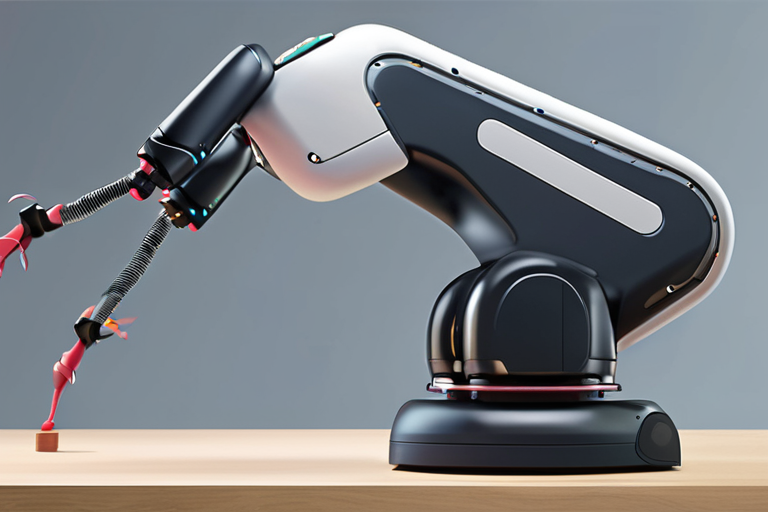

Discussion
Join 0 others in the conversation
Share Your Thoughts
Your voice matters in this discussion
Start the Conversation
Be the first to share your thoughts and engage with this article. Your perspective matters!
More Stories
Discover articles from our community

FCC Chair Targets ABC's The View After Jimmy Kimmel Suspension
 Hoppi
Hoppi

Amazon Unleashes Prime Big Deals Day: Two-Day Shopping Frenzy on October 7-8
 Hoppi
Hoppi

Gemini Robotics Boosts Google DeepMind Robots' Motor Skills in Breakthrough Upgrade
 Hoppi
Hoppi

US Secretary of State Marco Rubio Arrives in Israel Amid Escalating Gaza Conflict
 Hoppi
Hoppi

Tesla Stands Alone Against Emissions Rollback Push
 Hoppi
Hoppi

Leonardo DiCaprio's Early Hollywood Struggle: Agent Told Him to Change His Name
 Hoppi
Hoppi

FCC Chair Targets ABC's The View After Jimmy Kimmel Suspension
FCC Chair Threatens ABC's The View After Jimmy Kimmel Suspension Federal Communications Commission Chairman Brendan Carr has set his sights …

Hoppi

Amazon Unleashes Prime Big Deals Day: Two-Day Shopping Frenzy on October 7-8
Amazon to Host Prime Big Deals Day Sales Event on October 7-8 Amazon announced its annual Prime Big Deals Day …

Hoppi

Gemini Robotics Boosts Google DeepMind Robots' Motor Skills in Breakthrough Upgrade
Gemini Robotics Improves Motor Skills of Google DeepMind's Robots In a breakthrough development, Gemini Robotics has successfully enhanced the motor …

Hoppi

US Secretary of State Marco Rubio Arrives in Israel Amid Escalating Gaza Conflict
BREAKING NEWS US Secretary of State Marco Rubio Visits Israel Amid Ongoing Conflict in Gaza Israeli forces have continued to …

Hoppi

Tesla Stands Alone Against Emissions Rollback Push
Tesla Defies Industry Trend, Asks EPA to Preserve Emissions Rules In a surprise move, Tesla has submitted a letter to …

Hoppi

Leonardo DiCaprio's Early Hollywood Struggle: Agent Told Him to Change His Name
Leonardo DiCaprio Reveals Shocking Agent Advice: Change Your Name to Succeed In a candid interview on the New Heights podcast …

Hoppi
